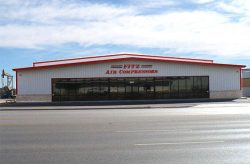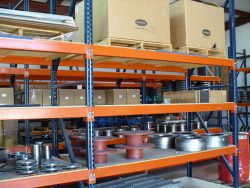How to Choose an In-line Filter for Your Industrial Compressor
We know it can be complicated to pick out an in-line filter for your industrial air compressor. But there are, of course, questions to ask that will help you figure out what’s best.
Just like your coffee needs a filter to separate the particles and pieces of coffee beans from your delicious cup of Joe, your compressed air system needs a filter to rid the air of impurities. An in-line filter can separate the particles, aerosols, and oil vapors that contaminate compressed air.
But there are many types of industrial air compressor filters. How do you make a choice? Well, the type and amount of filters you need will depend on the quality of the air your application or process requires.
This post covers how an air filter works, why you need it, and the different types of filters to consider.
How an In-Line Filter Works and Why it’s Necessary
It’s pretty simple, really. As air carries particles and debris, the filter will trap and collect them, purifying the air stream. The thing is that different types of industrial air compressor filters do this in different ways; some contain wet particles, others dry, or even vapors.
In the instance of an industrial compressed air system, the filter keeps water, oil, and dirt from reaching your pneumatic tools. If you don’t have a filter, you can expect contamination of the control valves, swelling of the protective seals, and premature wear and tear. So that means you will minimize machine downtime, overall costs and risks, and limit the need for repair and maintenance if you have a good filter.
That means if you don’t have these in place, your equipment can easily be destroyed, the job ruined, or food contaminated. Another bonus is that clean air will increase the lifespan of your tools.
Different Types of Industrial Air Compressor Filters
High Particulate Filter
Particulate filters remove particulates by trapping contaminants. The design of the filter element and the material it’s made from will determine the size of the particles it can trap. Particulate filters have differing degrees of filtration.
Activated Carbon Absorber
These filters are used to remove oil and hydrocarbon vapors from compressed air. They will also help reduce oil carryover to .0003 mg/m3. You’ll find these filters being used where removing taste or odors is vital, for example, in food processing or pharmaceuticals.
Coalescing Air Filter
Coalescing filters extract water, oil, aerosols, paint fluid, and other liquids but can’t filter vapors. Coalescence is the method of catching smaller droplets along the mechanisms until they merge into big drops that drop out of the airflow. These filters have varying degrees of filtration as the structure and type of mechanism determine how much aerosol can be removed.
Compressor Intake Filter
The intake is the first contact your compressor will have with the air, and the rest of your system relies on its effectiveness and ability to pull in air. Some small compressors won’t come with an intake filter, so it’s vital to install one. They will be able to pull out some of the harsher particulates, preserving the internal elements of your processor. Also, since they provide the first round of particulate extraction, they protect your other filters.
Since the filtration methods you choose can significantly impact your job’s quality and the endurance of your equipment, it’s vital to make sure you know exactly what filter is suitable for your air compressor system.
Call the In-line Filter Experts
If you are looking for advice on what filter is best for your air compressor or in the market for new industrial equipment and industrial air compressors filters, contact Fitz Equipment. We have experience and understanding of what will be best for your business. We also handle the servicing of air compressors and torque converters.
With over 50 years of dependable, fast, and friendly service, Fitz Equipment manufactures parts for torque converters and specialty machine parts. This family-owned business commits to superior customer service.




